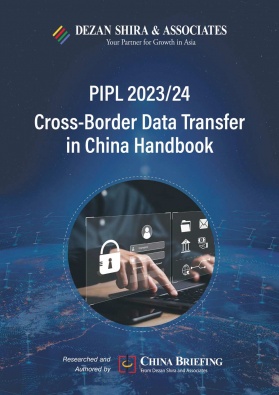Asia Transfer Pricing Brief: Q4 2023
In our Asia Transfer Pricing Brief for Q4 2023, we provide the latest transfer pricing updates from Asian markets. Among others, the Organization for Economic Co-operation and Development (OECD) released the sixth annual peer review of the BEPS Action 13 in late September, the mutual agreement procedure (MAP) statistics for the year 2022 in November, and the seventh annual peer review of the implementation of the BEPS Action 5 in December.
The sixth annual peer review of BEPS Action 13
On September 25, 2023, the OECD released the Country-by-Country Reporting – Compilation of 2023 Peer Review Reports (Inclusive Framework on BEPS: Action 13).
Developed in the context of the OECD/G20 BEPS Project, 15 Actions have been introduced to address international taxation issues and ensure that profits are taxed where value is created. Among the 15 Actions, four Actions (Action 5, Action 6, Action 13, and Action 14) are BEPS minimum standards, which mean they need to be subjected to peer review in order to ensure timely and accurate implementation.
As one of the minimum standards, Action 13 require all large multinational enterprises (MNEs) to prepare a country-by-country (CbC) report with aggregate data on the global allocation of income, profit, taxes paid, and economic activity among tax jurisdictions in which it operates. This CbC report is shared with tax administrations in these jurisdictions, for use in high level transfer pricing and BEPS risk assessments.
The peer review of the Action 13 Minimum Standard has completed five annual reviews in 2018, 2019, 2020, 2021 and 2022. These cover the three key areas under review:
- the domestic legal and administrative framework;
- the exchange of information framework; and
- the confidentiality and appropriate use of CbC reports.
This sixth annual peer review contains the review of 136 jurisdictions which provided legislation or information pertaining to the implementation of CbC Reporting. The Compilation reflects that implementation of country-by-country reporting is largely consistent with the Action 13 minimum standard. A large number of the recommendations made in the first five peer review phases have now been addressed by jurisdictions. However, 60 jurisdictions still have at least one recommendation outstanding.
Some of the highlights from the sixth annual peer review are summarized as below:
- More than 110 jurisdictions have already introduced legislation to impose a filing obligation on MNE groups, covering practically all MNE groups with consolidated group revenue at or above the threshold of EUR 750 million. Remaining Inclusive Framework members are working towards finalizing their respective domestic legal frameworks in this regard with the support of the OECD.
- In jurisdictions where relevant legislation is in place, the report reveals that such implementation of CbC reporting is largely consistent with Action 13.
- The report shows that 89 jurisdictions have bilateral or multilateral competent authority agreements in place. As a result, over 3,000 bilateral relationships for the exchange of CbC reports have been in place.
Given the complex international taxation landscape, enterprises must recognize that the information disclosed in Country-by-Country (CbC) reports submitted to one jurisdiction will be shared with other relevant jurisdictions. Additionally, tax administrations worldwide will leverage a range of tools, including CbC reports, for tax risk assessment and further investigations.
To navigate this environment successfully, companies should meticulously review the data and information intended for filing, ensuring both accuracy and appropriateness to preempt challenges from tax authorities. Furthermore, a thorough evaluation of the tax and transfer pricing positions at both the entity and group levels is recommended to proactively identify potential risks. In such circumstances, companies are strongly encouraged to seek guidance from tax professionals to navigate these complexities effectively.
OECD released the 2022 MAP statistics
In November 2023, the OECD released the 2022 Mutual Agreement Procedures (MAP) Statistics, covering 133 jurisdictions and practically all MAP cases worldwide.
These statistics form part of the BEPS Action 14 Minimum Standard and the wider G20/OECD tax certainty agenda to improve the effectiveness and timeliness of tax-related dispute resolution mechanisms. The MAP Statistics provide an objective and global frame of reference, as well as a country-specific view.
According to the released 2022 MAP Statistics, the following trends are evident:
- Increased taxpayer engagement: The number of new MAP cases initiated in 2022 has seen a rise compared to 2021. This surge is attributed to enhanced faith in MAP, facilitated by greater availability and access, a result of the introduction of the BEPS Action 14 Minimum Standard.
- Decrease in closed MAP cases: The year 2022 witnessed approximately a 4 percent reduction in closed MAP cases compared to 2021. This figure, while marking a return to baseline for MAP case closures, still represents a substantial increase when compared to the levels observed in 2020 and 2019.
- Generally positive outcomes: Around 73 percent of MAPs concluded in 2022 successfully resolved issues in both transfer pricing and other cases. Only about 2 percent of MAP cases closed without reaching an agreement. These percentages remain consistent with the figures from 2021.
- Progress towards the 24-month target: On average, MAP cases concluded in 2022 took 25.3 months, slightly closing the gap from the 26 months recorded in 2021. The increasing demand for MAP from taxpayers, coupled with competent authorities dedicating more resources to manage these cases, is contributing to this trend.
This year’s MAP Awards, given in recognition of efforts by competent authorities, saw the following winners:
- Netherlands and New Zealand, for the shortest time in closing transfer pricing cases and other cases, respectively.
- Canada, for the smallest proportion of pre-2016 cases in end inventory.
- Luxembourg and Norway, for the most effective caseload management.
- Netherlands, for the most improved jurisdiction, which closed an additional 102 cases with positive outcomes, compared to 2021, with increases for both transfer pricing and other cases.
As more tax jurisdictions intensify their efforts to implement Action 14, multinational enterprises should conduct a comprehensive examination of the tax status of entities across various jurisdictions. It is crucial to assess the tax implications for cross-border businesses and, when deemed necessary, explore the option of Mutual Agreement Procedure to enhance tax efficiency at both the entity and group levels.
Seventh annual peer review of the implementation of the BEPS Action 5
In December 2023, the OECD/G20 Inclusive Framework on BEPS issued the 2022 Peer Review Reports on the Exchange of Information on Tax Rulings. This release marks the seventh round of peer review assessments evaluating the implementation of the BEPS Action 5 minimum standard on tax rulings. The primary objective of these peer reviews is to furnish tax administrations with essential information related to their taxpayers, enabling them to effectively address issues such as tax avoidance and other BEPS risks.
As part of the minimum standards outlined in BEPS Action 5, members of the OECD/G20 Inclusive Framework on BEPS have pledged to combat harmful tax practices, placing a specific emphasis on enhancing transparency.
A component of the BEPS Action 5 minimum standard is the transparency framework, mandating the automatic exchange of information on specific tax rulings. For the peer reviews, a set of specific terms of reference and a methodology have been established, concentrating on five crucial elements: the information gathering process, the exchange of information, the confidentiality of received information, statistics on rulings exchanges, and transparency regarding certain aspects of intellectual property regimes.
The report reveals that more than 54,000 exchanges of information have occurred pertaining to over 24,000 identified tax rulings. Additionally, the peer review findings indicate that 100 jurisdictions are fully compliant with the BEPS Action 5 minimum standard. The remaining 31 jurisdictions have received a total of 58 recommendations to enhance their legal or operational frameworks for identifying pertinent tax rulings and facilitating information exchange.
Feedback provided by Inclusive Framework members during this peer review process, as well as in previous years, has enabled numerous jurisdictions to refine their processes, enhancing the clarity and quality of the exchanged information.
As an increasing number of jurisdictions engage in the collaborative effort to counter harmful tax practices, and with heightened cooperation among member countries, transfer pricing and tax-related matters are poised to be a central focus for tax authorities in the future, subject to more rigorous scrutiny than ever before. Enterprises with a global footprint must be well-prepared for this evolving international taxation landscape, proactively implementing measures to ensure compliance and effectively mitigate potential risks and complexities associated with taxes and transfer pricing.
Asia remains one of the world’s primary investment hubs, attracting an increasing number of businesses that have either expanded or are contemplating expansion into its high-performing emerging markets. For multinational enterprises (MNEs), transfer pricing is an important issue that demands attention sooner or later.
Transfer pricing concerns the pricing arrangements between associated enterprises (AE) operating in different tax jurisdictions for their intercompany transactions. In alignment with international regulations, Asian taxpayers engaged in transactions with other group entities must substantiate that these dealings adhere to the “arm’s length standard.” This standard necessitates taxpayers to prove that their transactions with related parties mirror those with third parties in a similar manner and under comparable conditions.
Nevertheless, the transfer pricing landscape has grown more complex in recent years and can be challenging for MNEs to navigate successfully. Apart from the international transfer pricing initiatives spearheaded by the Organization for Economic Co-operation and Development (OECD), individual governments are intensifying their own tax and regulatory frameworks overseeing transfer pricing. This heightened focus aims to protect their tax revenue amid financial constraints caused by the three-year COVID-19 pandemic and to manage domestic jurisdiction compliance in a dynamic global business environment.
In this scenario, it is crucial for foreign investors to stay on top of international and regional transfer pricing updates in order to effectively address their global transfer pricing concerns. Consequently, starting Q3 2023, our team of Dezan & Shira transfer pricing and tax professionals have taken the initiative to produce a quarterly Asia Transfer Pricing Brief. This brief will succinctly summarize timely transfer pricing news, aiming to provide you and your Asia-based business with a strategic advantage in managing international taxation issues and ensuring compliance.
Dezan Shira & Associates’ transfer pricing practice helps companies conducting transactions with related parties to deal with transfer pricing issues. The services provided by our tax professionals are comprehensive and tailored to each client’s individual needs, often arising from the uniqueness of its business operations. For any support regarding transfer pricing documentation, benchmark study, tax audits, and transfer pricing policy monitoring, please contact China@dezshira.com.
About Us
China Briefing is written and produced by Dezan Shira & Associates. The practice assists foreign investors into China and has done so since 1992 through offices in Beijing, Tianjin, Dalian, Qingdao, Shanghai, Hangzhou, Ningbo, Suzhou, Guangzhou, Dongguan, Zhongshan, Shenzhen, and Hong Kong. Please contact the firm for assistance in China at china@dezshira.com.
Dezan Shira & Associates also has offices in Vietnam, Indonesia, Singapore, United States, Germany, Italy, India, and Dubai (UAE). We also have partner firms assisting foreign investors in The Philippines, Malaysia, Thailand, Bangladesh.
- Previous Article GDP Expands 5.2% in 2023 – Analyzing China’s Key Economic Indicators
- Next Article China to Grant Ireland Unilateral Visa-Free Treatment, Deepening Bilateral Ties

























